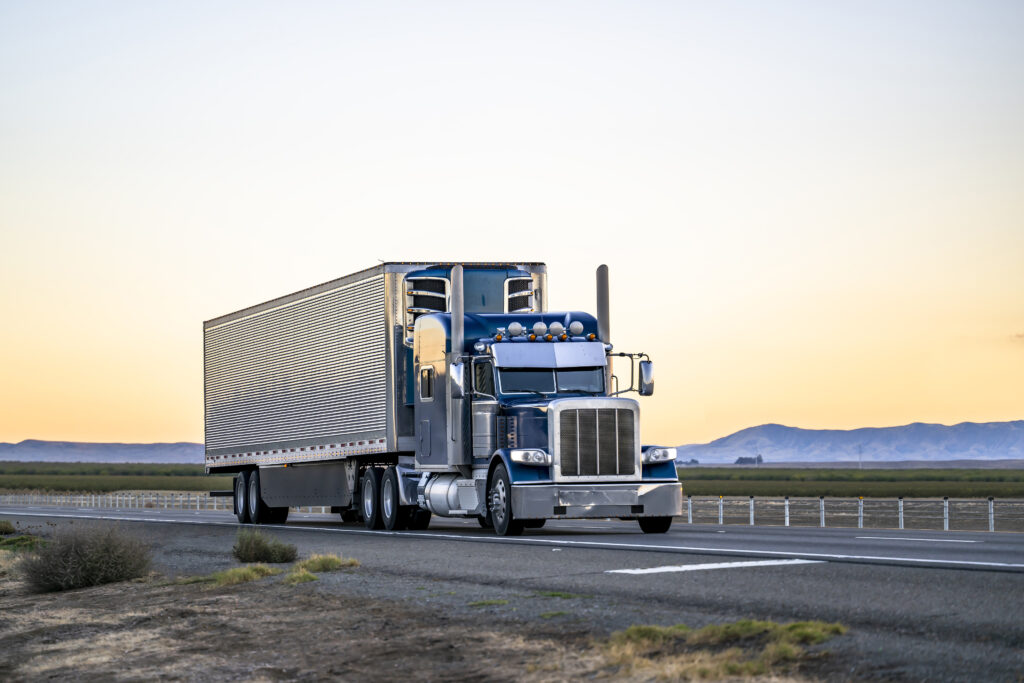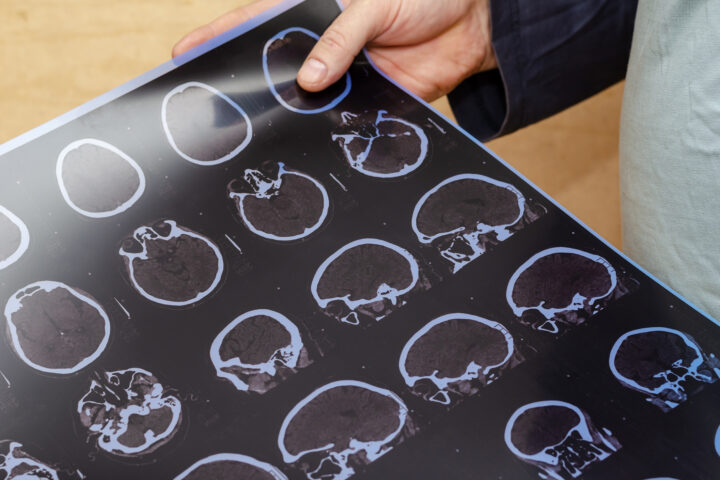
In 2021, there were 5,700 large trucks involved in fatal traffic accidents, which is an 18% increase from 2020. A total of 4,714 lives were lost in large truck crashes. Truck accidents can result in devastating injuries that profoundly impact victims’ lives. Here are common truck accident injuries:
1. Burns and Lacerations
Truck accidents often result in severe burns and lacerations due to the impact and subsequent fires. Burn injuries can range from minor to life-threatening, leaving victims with long-term physical and emotional scars. Burns can vary in degrees: first-degree burns affect the outer layer of skin, while third-degree burns penetrate deeper layers and may require skin grafts.
Lacerations, caused by sharp objects or broken glass, can lead to significant bleeding and require immediate medical attention. Lacerations may lead to infections if not properly treated which is why immediate medical care is required. These truck accident injuries not only cause physical pain but can also emotional trauma, impacting the victim’s quality of life.
2. Back and Neck Injuries
Back and neck injuries are prevalent in truck accidents due to the force of impact. These injuries can range from mild strains to severe spinal cord injuries, resulting in long-term disabilities. Victims often experience chronic pain, limited mobility, and difficulties in performing everyday tasks. Back and neck injuries can significantly impact a person’s ability to work, affecting their financial stability and overall well-being.
Common back and neck injuries include herniated discs, fractures, and whiplash, which can cause persistent pain and limited range of motion. Rehabilitation, physical therapy, and sometimes surgery are typically required for these kinds of injuries.
3. Head and Brain Injuries
Truck accidents often result in head injuries, which can have devastating and long-lasting effects on victims. These injuries can occur even with the use of seat belts and helmets, highlighting the immense force involved in such accidents. Head and brain injuries can lead to cognitive impairments, memory loss, and personality changes.
Concussions, contusions, and traumatic brain injuries (TBI) are common in truck accidents, with symptoms ranging from headaches and dizziness to loss of consciousness and memory problems. Victims of head and brain injuries may require extensive medical treatment, including neurosurgery, rehabilitation, and ongoing therapy.
Long-term effects such as cognitive deficits and emotional disturbances can impact a person’s ability to work and maintain relationships.
4. Traumatic Brain Injury (TBI)
Traumatic brain injury (TBI) is a severe consequence of truck accidents, often leading to life-altering disabilities. TBIs can occur when an individual receives a sudden blow or jolt to the head. Traumatic brain injuries can affect memory, speech, and motor skills and leave victims with cognitive, emotional, and physical impairments.
TBIs can be classified as mild, moderate, or severe, with symptoms ranging from confusion and nausea to coma and persistent vegetative states.
Victims of TBIs often require specialized care, including speech therapy, physical therapy, and occupational therapy, to regain lost functions and adapt to their new circumstances. The emotional toll on both the victim and their family is significant, making it essential to seek legal assistance to secure compensation for medical expenses, ongoing care, and emotional distress.
5. Broken Bones
Truck accidents frequently result in broken bones due to the force of the collision. Broken bones can vary in severity, from simple fractures that require a cast to complex fractures that necessitate surgery and extensive rehabilitation. These injuries can lead to excruciating pain, temporary or permanent disabilities, and emotional trauma for the victim.
Common bones that are fractured in truck accidents include arms, legs, ribs, and facial bones, each requiring different treatments and recovery periods. Complications such as infections and nerve damage can arise from broken bones, prolonging the recovery process and increasing medical expenses.
6. Rib and Torso Injuries
Rib and torso injuries are common in truck accidents due to the impact force against the chest area. These injuries can range from bruised ribs to fractures and internal organ damage. Rib and torso injuries can cause excruciating pain, difficulty breathing, and potential complications such as pneumonia or organ failure, making immediate medical attention vital for recovery.
Rib fractures can lead to punctured lungs or damage to other internal organs, requiring surgery and intensive care. Victims of rib and torso injuries often experience difficulty in breathing, coughing, and even laughing, impacting their quality of life and overall well-being. Recovery from these truck accident injuries can be lengthy and challenging, involving pain management, physical therapy, and sometimes, surgical interventions to restore normal bodily functions.
7. Amputation Injuries
Truck accidents can result in traumatic injuries that necessitate limb amputation. These life-altering injuries can occur during the accident or may be a medical necessity following the crash. Amputation injuries can lead to significant emotional distress, rehabilitation challenges, and the need for prosthetic devices, highlighting the profound impact on a person’s life.
Amputation injuries can involve the loss of limbs such as arms, legs, hands, or fingers, drastically affecting a person’s ability to perform daily activities and work.
Victims require extensive rehabilitation and psychological support to adapt to their new circumstances, including learning to use prosthetic limbs and coping with the emotional trauma of losing a limb.
8. Soft Tissue Injuries
Soft tissue injuries, such as sprains, strains, and bruises, are common in truck accidents. While these injuries may seem less severe than fractures or amputations, they can cause significant pain and discomfort. Soft tissue injuries can affect muscles, ligaments, and tendons, leading to limited mobility and difficulty in performing everyday tasks.
Soft tissue injuries can result in chronic pain, swelling, and limited range of motion, affecting a person’s ability to work and maintain their quality of life. Physical therapy, pain management, and sometimes surgery are required to treat severe soft tissue injuries.
9. Internal Injuries
Truck accidents can cause internal injuries, which may not be immediately apparent but can be life-threatening if left untreated. Internal injuries can affect organs such as the lungs, liver, kidneys, or spleen, leading to internal bleeding and organ damage. Prompt medical evaluation is crucial to diagnose and treat internal injuries effectively.
Symptoms of internal injuries may include abdominal pain, dizziness, fainting, or changes in skin color, indicating potential organ damage or bleeding. Internal injuries often require surgery, intensive care, and long recovery periods.
10. Wrongful Death
Crashes involving large trucks can tragically result in wrongful death, leaving families devastated and seeking answers and justice for their loved ones. Wrongful death claims can be filed when the negligence or wrongful actions of another party lead to a person’s death.
Wrongful death lawsuits allow surviving family members to pursue compensation for medical expenses, funeral costs, lost income, and the emotional suffering resulting from the loss of their loved one. While no amount of compensation can replace a lost life, pursuing a wrongful death claim can provide financial support for the surviving family members and hold the responsible parties accountable for their actions. An experienced wrongful death attorney can help surviving family members navigate the claims process and recover fair compensation.
Who is Liable in a Trucking Accident?

Determining liability in a trucking accident involves a thorough investigation to identify the parties responsible for the crash. Several factors can contribute to truck accidents, including the following:
- Driver negligence
- Speeding
- Distracted driving
- Fatigued driving
- Driving under the influence
- Vehicle defects
- Improper cargo loading
- Unrealistic schedules leading to driver fatigue
- Improper training
- Inadequate vehicle maintenance
Liability may extend to multiple parties, such as the truck driver, trucking company, maintenance crew, or even the manufacturer of defective parts. An experienced truck accident attorney will help you determine the liable parties and hold them accountable for your losses.
Do I Have a Truck Accident Injury Case?
If you have been involved in a truck accident and sustained injuries, you may have a valid truck accident injury case if the accident was caused by someone else’s negligence.
If the truck driver, trucking company, or any other party involved in the accident acted negligently, such as by violating traffic laws, driving recklessly, or failing to maintain the vehicle, you may have a strong case. Document the severity of your injuries, medical treatments received, and any ongoing medical needs. Gather evidence such as accident reports, medical records, eyewitness statements, and photographs of the accident scene and your injuries.
It’s best to consult with a personal injury attorney who can help you determine the viability of your case. At Santiago Accident Lawyers, our California truck accident attorneys will protect your rights and help you obtain a fair settlement.
Damages Available in a Personal Injury Claim
In a truck accident personal injury claim, victims can seek various types of damages to compensate for their losses and suffering. These damages can be both economic and non-economic and aim to provide financial relief to the injured party. Damages available in a personal injury claim may include:
Medical bills – Compensation for past, current, and future medical expenses related to the accident, including hospital stays, surgeries, rehabilitation, medications, and assistive devices.
Lost wages – Reimbursement for lost wagesdue to severe injuries, including wages, bonuses, and other employment benefits. Future lost earning capacity may also be considered if the injuries result in a permanent disability.
Pain and suffering – These damages compensate victims for pain, mental distress, and the overall impact of the injuries on the victim’s quality of life.
Property damage – Compensation for repair or replacement of the victim’s vehicle and any personal property damaged in the accident.
Loss of consortium – Damages awarded to the spouse or family members for the loss of companionship, support, and intimacy due to the victim’s injuries or passing.
Get Help from a California Truck Accident Attorney
Truck accidents can lead to a wide range of injuries, from burns and lacerations to traumatic brain injuries and wrongful death. Determining liability after a truck accident can be complex. Truck accident victims should consider consulting an experienced personal injury attorney to assess the viability of their case.
If you sustained serious injuries in a truck accident caused by someone else’s negligence, please don’t hesitate to reach out to us. At Santiago Accident Lawyers, our truck accident lawyers are dedicated to helping injured victims recover just compensation for their losses.


